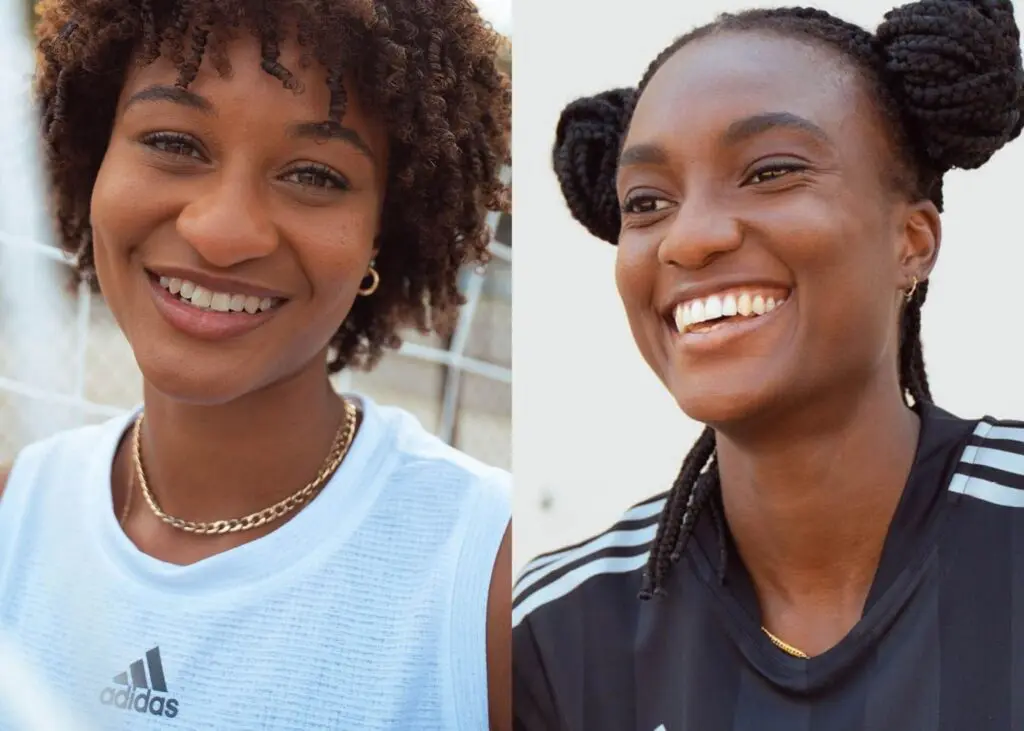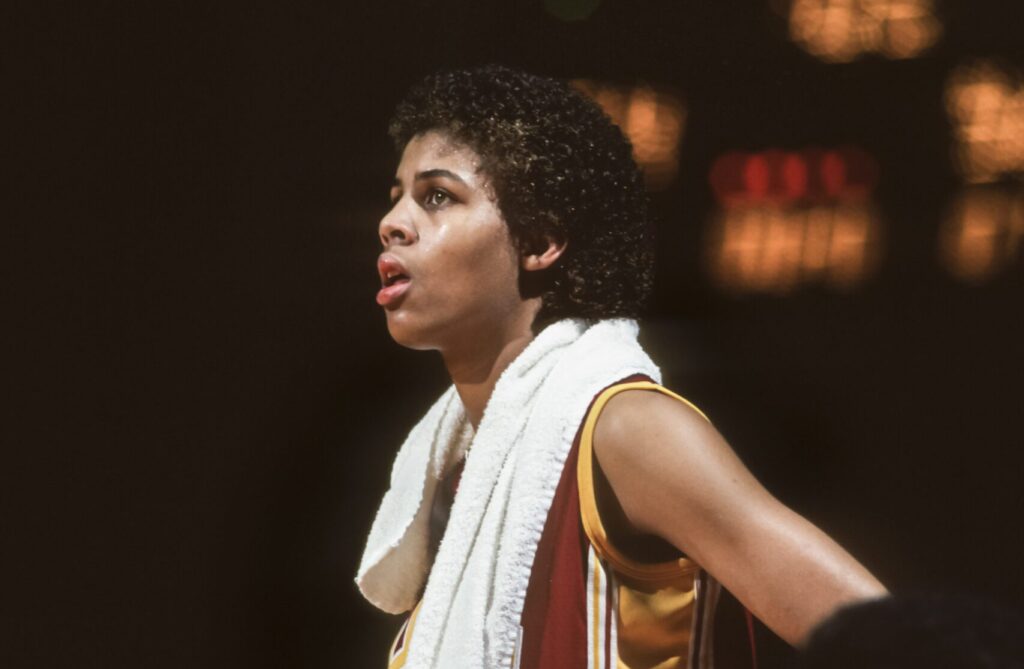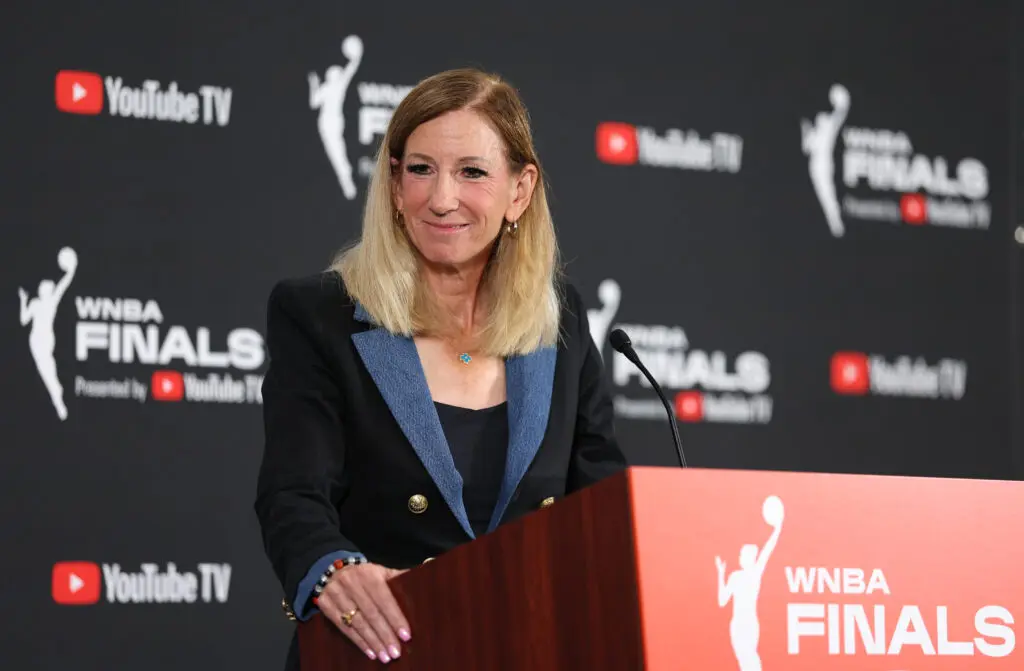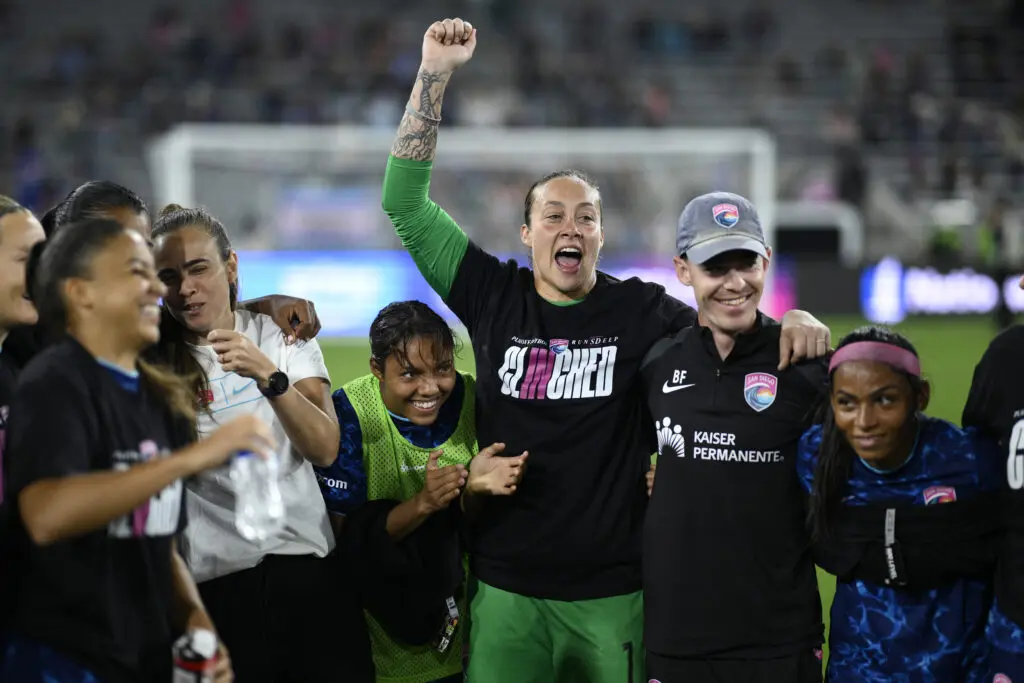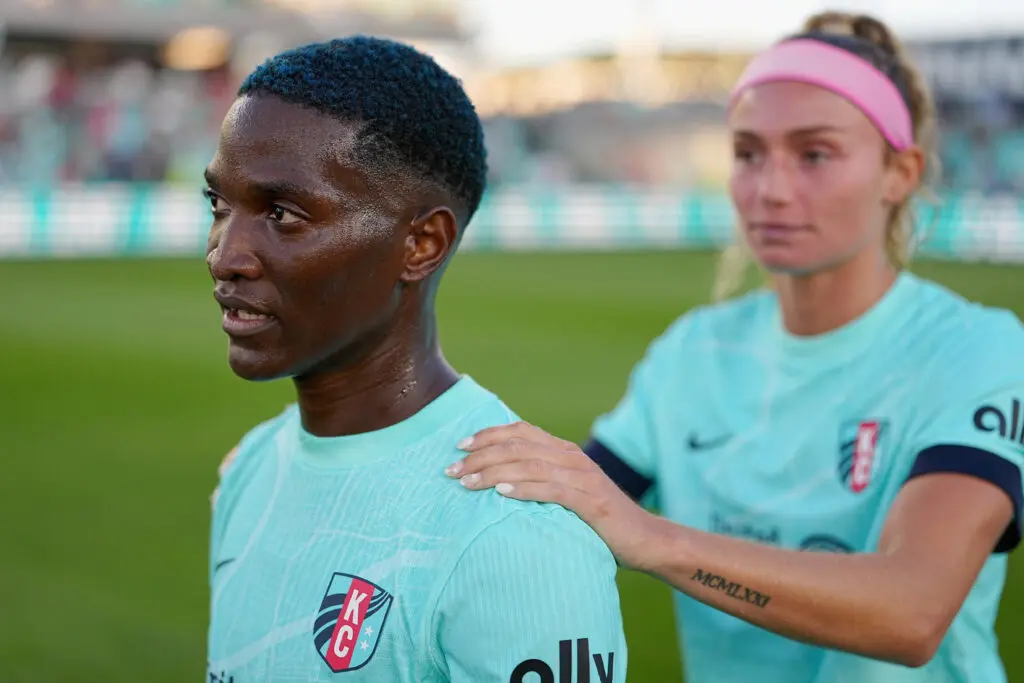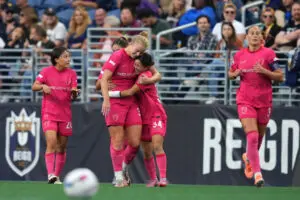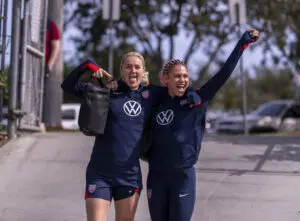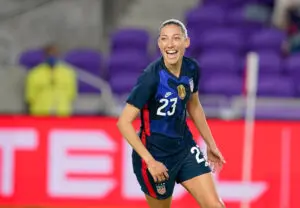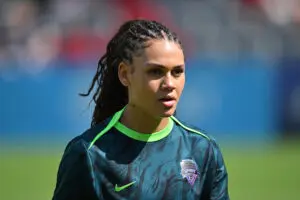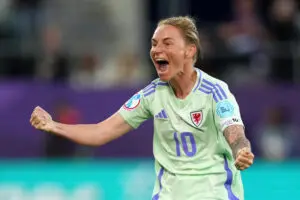While other young American athletes dreamed of playing professionally, Ifeoma Onumonu and Imani Dorsey of NJ/NY Gotham FC never grew up envisioning that future for themselves. Not only was soccer expensive, but it was also difficult to picture being a pro given the lack of prominent Black female soccer players.
While girls’ participation in sport is generally limited by a lack of exposure to female athletes and coaches as role models, the drop-out rate for girls of color in urban and rural centers is twice that of suburban white girls, according to the Women’s Sports Foundation.
“Growing up, most of my role models were men, white men, because there weren’t many other Black female athletes like us,” says Onumonu. “We were the minorities in this sport. And because of that, we never thought we’d be in this position today.”
Onumonu and Imani are both board members for the Black Women’s Player Collective, whose mission is to lift the image, value and representation of Black women as athletes and leaders.
Founded in October 2020, in the wake of George Floyd’s murder and a summer of national protests, the BWPC is made up of seven board members, 38 members and 15 advocates. Its roster includes all 43 Black women competing in the NWSL as of 2020.
For both Omunonu and Dorsey, the Collective gives them a chance to confront and address the racial inequity that has long persisted in one of the country’s most popular sports.
“Growing up in a predominantly affluent white area, it felt like I had to hide or downplay my Blackness to fit in, since I was one of few,” says Dorsey. “I had to make things that were different about me from others in my group feel less intimidating. That meant not really speaking up on Black issues that were in the news and that my family was speaking about very regularly. I was not really talking about those topics with my teammates.”
Dorsey says she often had to overlook comments about being an ‘Oreo’ — Black on the outside but white on the inside.
“Now I feel like I can reclaim that part of my identity and celebrate it, but not just as myself but as a group with the Black community,” she says.
Onumonu says her experience was similar.
“I used to just let things slip, let them slide off my back and not bring them up in efforts to stay a part of the group. I think that was damaging to myself and my self-esteem and impacted how I was playing the game and how I performed in the game,” she says.
“Now I feel like I no longer have to do that because I have such a powerful group behind me that supports me. There’s power in numbers and there’s power about talking about these issues.”
This week, the BWPC’s ranks expanded when it announced a long-term partnership with adidas. Together, the Collective and adidas will host soccer clinics and programming for girls aged eight to 15 in cities such as Atlanta, Durham, Orlando and Houston.
The BWPC and adidas, alongside the U.S. Soccer Foundation, Black Players for Change and Musco Lighting, have also committed to building 12 new mini pitches in predominantly Black communities across the U.S. by 2022.
It’s a first step, but a big one, toward making soccer a more accessible game for all.
Dorsey, who grew up in Maryland, shifted from recreational soccer to travel teams around the age of eight. Even then, it was clear to her that the expenses of competing were a prohibitive burden on families. For a chance at a full-ride scholarship in college, parents had to invest in high-level training for their children, starting in grade school.
Thankfully Dorsey, who ended up at Duke, was able to find opportunities in the national program, increasing her exposure to elite competition. But given that only a tiny percentage of soccer players ever have the privilege of wearing the crest, she knows her path isn’t a sustainable solution.
“[Soccer’s] an expensive sport and I think that’s something that we need to change, whether that means providing scholarships for players or redesigning the entire pay-to-play model,” says Onumonu, who was also in the U.S. youth national program, played collegiately at Cal and is now a member of the Nigerian national team.
“The path I had was one that I had the privilege to have, but I know that’s not necessarily the story for everyone,” she says. “And I think that’s why so many Black girls miss out on the opportunity that soccer can bring. I hope our work with the BWPC and adidas can inspire young girls to do whatever it is that they set their mind to.”
Alongside their new partnership, the BWPC is also rolling out a new logo. The vibrance of the logo represents the boldness and disruption of the organization’s mission, with a tilted “W” to signify the Collective’s ascendant ethos and spirit. The warm color palette is meant to represent the players’ love for their sport.
We are thrilled to launch our new logo with the ambition of it becoming a universal symbol of commitment to transforming the game for black women and girls everywhere!
— Black Women’s Player Collective (@BWP_Collective) October 11, 2021
#TheGameNeedsHer
Visit our new website https://t.co/iXTUdy99nO to join us! pic.twitter.com/sxYiP5CV2Z
“I’m constantly inspired by the incredible women in the BWPC on a personal level,” says Dorsey. “It’s something that is really close to my heart and I’m even more thankful to our fans who have been so supportive along the way.
“I want to encourage young girls to learn and grow from their teammates, because what I love so much about soccer is my team, and having that friendship is so important to me. Looking back, I wish I was brave enough to let my Blackness be a part of that for more of my teammates, and shed light to hopefully teach other young girls that it’s okay to have a different perspective.”
It’s been a busy couple weeks for Dorsey, who is also a part of the NWSL Players Association, which been working around the clock with players and the league in order to implement immediate and long-term changes in the wake of the Paul Riley scandal.
In this context, the BWPC’s momentum and groundbreaking partnership with adidas is providing a ray of hope in an otherwise difficult time for women’s soccer.
“Our formation as an organization gave us the realization of the power that we have together and that we should be able to openly talk about our experiences as Black women, because that is something we haven’t had the opportunity to do before,” says Dorsey.
“I think that collective power should really inspire young girls to be proud of who they are and being unapologetic about their Blackness and their experiences, regardless of what it is.”
You can learn more about the BWPC’s mission here and donate directly to the Collective here.
Jessa Braun is an editorial intern for Just Women’s Sports. She is also the Head of North American Content for the Women’s Sports Alliance. You can find her on Twitter @jessabraun.
